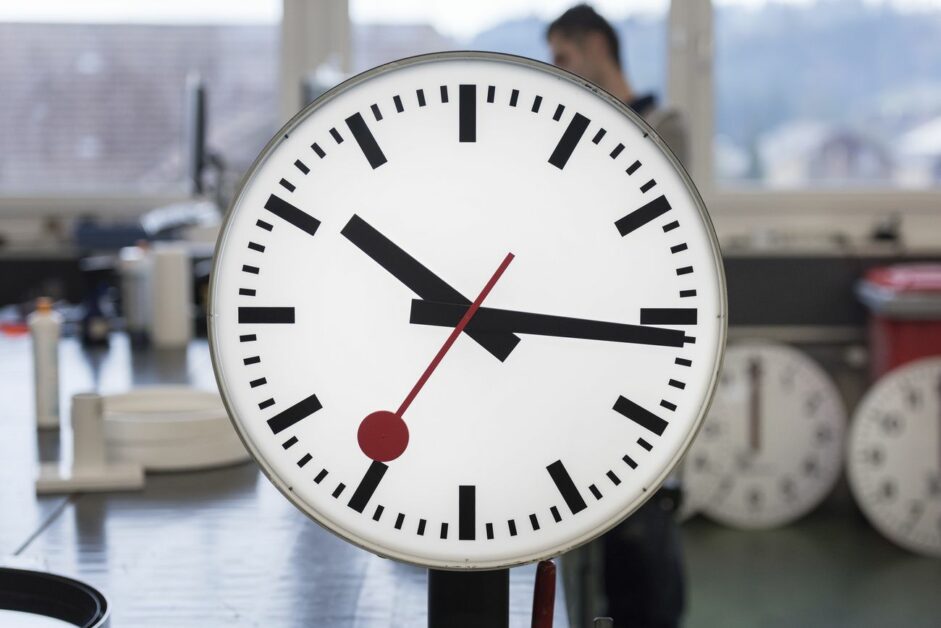Sáb, Mar 30th 2024
Switzerland and most European nations transition to daylight saving time.

On Sunday at 02:00, the clocks in Switzerland and in most European countries are set forward by one hour to 03:00. The changeover to summer time begins on the last Sunday in March and ends on the last Sunday in October.
Summer time 2024 will last 30 weeks or 210 days. On October 27, the clocks will be set back to 02:00 and standard time at 03:00.
The possible abolition of the seasonal time change has become a political issue, particularly in Switzerland’s neighbouring countries. The European Union presented concrete plans, but the member states did not follow suit.
Critics of the time change complain about negative effects on health and animal welfare. Children and older people in particular would suffer from mini-jetlag. There are also more traffic accidents due to fatigue. The changeover is also a thorn in the side of the agricultural sector because the milk yield of cows is said to be lower.
Daylight saving time was first introduced in Europe in 1973 against the backdrop of the oil crisis. The aim of the time shift was to gain an extra hour of daylight for businesses and households with the aim of saving energy. To avoid becoming a time island, Switzerland followed suit in 1981.
©Keystone/SDA
